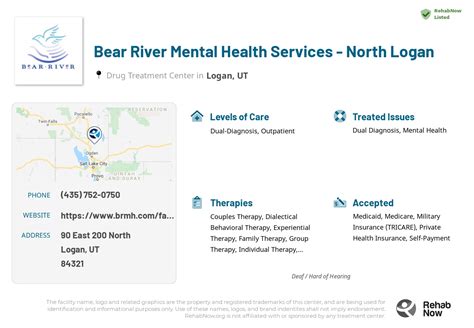Intro
Canker sores, also known as aphthous ulcers, are a common and often painful condition that affects millions of people worldwide. These small, shallow lesions can appear on the tongue, inside the cheeks, and on the lips, causing discomfort and making everyday activities like eating and talking a challenge. Despite their prevalence, canker sores are still not fully understood, and their exact cause remains a topic of debate among medical professionals. However, research has shed some light on the possible triggers and risk factors associated with canker sores, and various treatments are available to help alleviate the symptoms and promote healing.
Canker sores can be a source of significant distress, especially for individuals who experience frequent or severe outbreaks. The pain and discomfort caused by these lesions can be debilitating, making it essential to seek effective treatment options. Fortunately, there are many ways to manage canker sores, from simple home remedies to prescription medications and alternative therapies. By understanding the causes, symptoms, and treatment options available, individuals can take control of their condition and find relief from the discomfort and pain associated with canker sores.
The importance of treating canker sores cannot be overstated. If left untreated, these lesions can lead to complications, such as infection, scarring, and even nutritional deficiencies. Furthermore, canker sores can be a symptom of an underlying condition, such as a vitamin deficiency, hormonal imbalance, or autoimmune disorder. Therefore, it is crucial to consult a healthcare professional for proper diagnosis and treatment. With the right approach, individuals can prevent future outbreaks, reduce the severity of symptoms, and improve their overall quality of life.
Treatment Options for Canker Sores

There are various treatment options available for canker sores, ranging from over-the-counter medications to prescription treatments and alternative therapies. The choice of treatment depends on the severity of the condition, the individual's overall health, and their personal preferences. Some common treatment options include:
- Topical anesthetics, such as benzocaine or lidocaine, to numb the area and reduce pain
- Anti-inflammatory medications, such as ibuprofen or aspirin, to reduce swelling and discomfort
- Antihistamines, such as diphenhydramine, to relieve itching and inflammation
- Antibacterial mouthwashes, such as chlorhexidine, to prevent infection and promote healing
- Prescription medications, such as corticosteroids or immunosuppressants, for severe or recurrent canker sores
Home Remedies for Canker Sores
In addition to medical treatments, there are several home remedies that can help alleviate the symptoms of canker sores. These include:- Applying a cold compress or ice pack to the affected area to reduce pain and inflammation
- Rinsing the mouth with salt water or baking soda to reduce bacteria and promote healing
- Using a topical paste made from baking soda and water to neutralize acid and reduce discomfort
- Avoiding spicy, acidic, or sharp foods that can irritate the sores and prolong healing time
- Practicing good oral hygiene, such as brushing and flossing regularly, to prevent infection and promote healing
Causes and Risk Factors of Canker Sores

While the exact cause of canker sores is still unknown, research has identified several potential triggers and risk factors. These include:
- Genetic predisposition: Individuals with a family history of canker sores are more likely to develop the condition
- Hormonal changes: Fluctuations in hormone levels, such as during menstruation or menopause, can trigger canker sores
- Nutritional deficiencies: Lack of essential nutrients, such as vitamin B12, iron, or folic acid, can increase the risk of canker sores
- Stress and anxiety: High levels of stress and anxiety can weaken the immune system and trigger canker sores
- Certain medications: Some medications, such as beta-blockers or NSAIDs, can increase the risk of canker sores
- Underlying medical conditions: Certain conditions, such as celiac disease, Crohn's disease, or ulcerative colitis, can increase the risk of canker sores
Prevention and Management of Canker Sores
While canker sores cannot be completely prevented, there are several steps individuals can take to reduce their risk and manage symptoms. These include:- Maintaining good oral hygiene, such as brushing and flossing regularly
- Avoiding spicy, acidic, or sharp foods that can irritate the sores
- Managing stress and anxiety through relaxation techniques, such as meditation or deep breathing
- Getting regular check-ups with a healthcare professional to monitor for underlying conditions
- Avoiding certain medications that can trigger canker sores
Complications and Consequences of Untreated Canker Sores

If left untreated, canker sores can lead to complications, such as infection, scarring, and even nutritional deficiencies. In severe cases, canker sores can be a symptom of an underlying condition, such as a vitamin deficiency, hormonal imbalance, or autoimmune disorder. Therefore, it is crucial to seek medical attention if symptoms persist or worsen over time.
Some potential complications of untreated canker sores include:
- Infection: Bacterial or viral infections can occur if the sores are not properly cleaned and cared for
- Scarring: Large or deep canker sores can leave scars, which can be permanent and affect the appearance of the mouth
- Nutritional deficiencies: Frequent or severe canker sores can lead to malnutrition, as individuals may avoid eating due to pain or discomfort
- Underlying conditions: Canker sores can be a symptom of an underlying condition, such as celiac disease, Crohn's disease, or ulcerative colitis
Seeking Medical Attention for Canker Sores
If symptoms persist or worsen over time, it is essential to seek medical attention. A healthcare professional can diagnose the condition, rule out underlying causes, and provide guidance on treatment options. In some cases, a biopsy may be necessary to rule out other conditions, such as oral cancer.Some signs that medical attention is necessary include:
- Severe or persistent pain
- Large or deep sores that do not heal
- Fever or swollen lymph nodes
- Difficulty eating or swallowing
- Sores that bleed or ooze pus
Alternative Therapies for Canker Sores

In addition to medical treatments, there are several alternative therapies that can help alleviate the symptoms of canker sores. These include:
- Acupuncture: This traditional Chinese medicine technique involves inserting small needles into specific points on the body to stimulate healing and reduce pain
- Herbal remedies: Certain herbs, such as aloe vera, chamomile, or calendula, have anti-inflammatory and soothing properties that can help reduce discomfort and promote healing
- Homeopathy: This holistic approach to medicine involves using highly diluted substances to stimulate the body's natural healing processes
- Aromatherapy: Certain essential oils, such as tea tree oil or peppermint oil, have antibacterial and anti-inflammatory properties that can help reduce pain and promote healing
Integrating Alternative Therapies into Treatment
While alternative therapies can be effective in alleviating symptoms, it is essential to integrate them into a comprehensive treatment plan. Individuals should consult with a healthcare professional before trying alternative therapies, as some may interact with medications or have adverse effects.Some tips for integrating alternative therapies into treatment include:
- Consulting with a healthcare professional to determine the best course of treatment
- Starting with small doses or trials to assess effectiveness and tolerability
- Combining alternative therapies with medical treatments for optimal results
- Monitoring progress and adjusting the treatment plan as needed
Conclusion and Future Directions

In conclusion, canker sores are a common and often painful condition that affects millions of people worldwide. While the exact cause is still unknown, research has identified several potential triggers and risk factors. Various treatment options are available, ranging from over-the-counter medications to prescription treatments and alternative therapies. By understanding the causes, symptoms, and treatment options, individuals can take control of their condition and find relief from the discomfort and pain associated with canker sores.
As research continues to uncover the mysteries of canker sores, new and innovative treatments are being developed. Some potential future directions include:
- Gene therapy: Researchers are exploring the use of gene therapy to modify the genes that contribute to canker sores
- Stem cell therapy: Stem cells have the potential to repair damaged tissue and promote healing
- Nanotechnology: Nanoparticles and other nanotechnology-based approaches are being developed to deliver targeted treatments and promote healing
What are the most common causes of canker sores?
+Canker sores can be caused by a variety of factors, including genetic predisposition, hormonal changes, nutritional deficiencies, stress and anxiety, and certain medications.
How can I prevent canker sores?
+While canker sores cannot be completely prevented, individuals can reduce their risk by maintaining good oral hygiene, avoiding spicy or acidic foods, managing stress and anxiety, and getting regular check-ups with a healthcare professional.
What are the most effective treatments for canker sores?
+The most effective treatments for canker sores depend on the severity of the condition and the individual's overall health. Common treatments include topical anesthetics, anti-inflammatory medications, and prescription medications. Alternative therapies, such as acupuncture and herbal remedies, may also be effective in alleviating symptoms.
Can canker sores be a symptom of an underlying condition?
+Yes, canker sores can be a symptom of an underlying condition, such as a vitamin deficiency, hormonal imbalance, or autoimmune disorder. If symptoms persist or worsen over time, it is essential to seek medical attention to rule out underlying causes.
How can I manage canker sores during pregnancy or breastfeeding?
+Individuals who are pregnant or breastfeeding should consult with a healthcare professional before using any medications or alternative therapies. In general, it is recommended to avoid using certain medications, such as tetracycline, and to opt for natural remedies, such as aloe vera or chamomile, to alleviate symptoms.
We hope this article has provided you with a comprehensive understanding of canker sores, including their causes, symptoms, and treatment options. If you have any further questions or concerns, please do not hesitate to comment below or share this article with others who may be affected by this condition. Remember, taking control of your health is the first step towards finding relief and promoting overall well-being.
